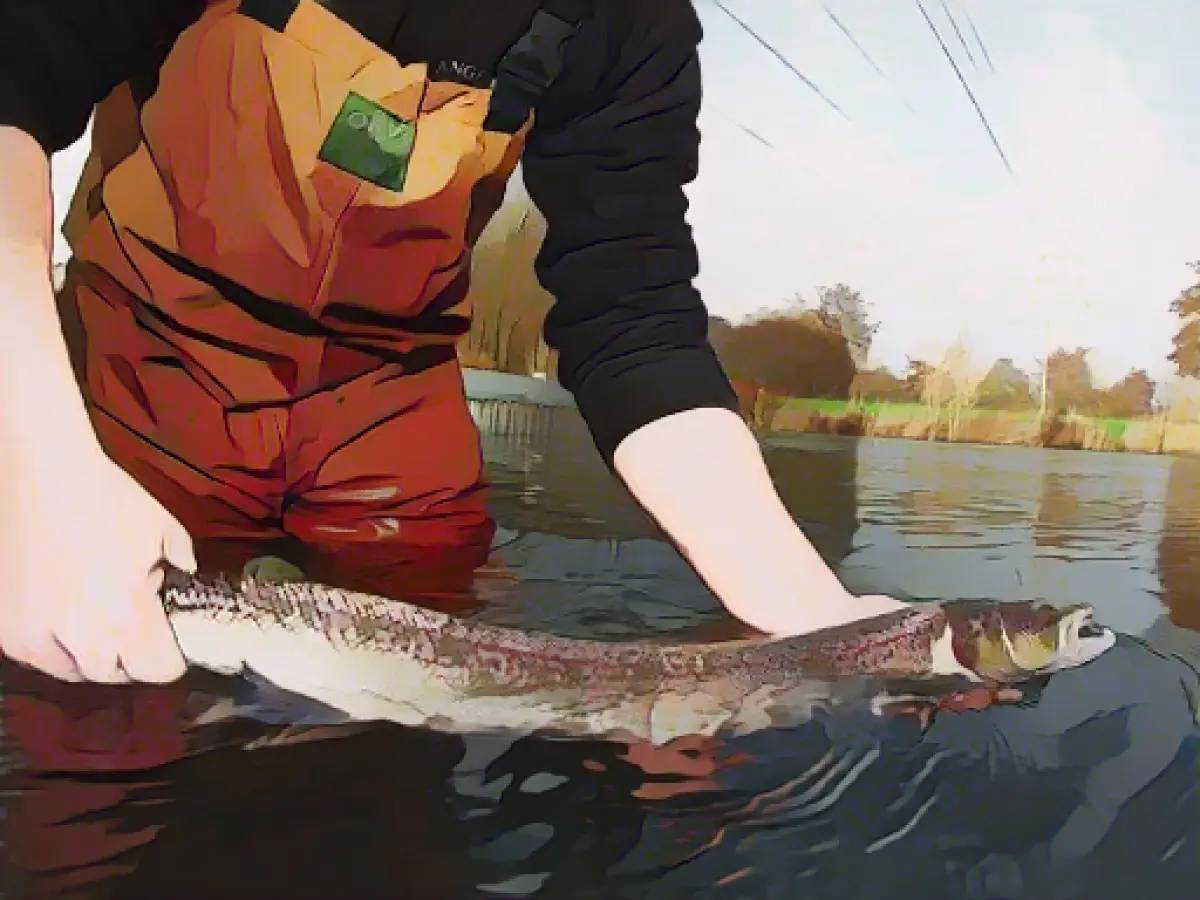Thanks to the rain: salmon swim from the sea to NRW
Due to the rainy fall, a particularly large number of salmon have swum from the sea to their spawning grounds in the rivers of North Rhine-Westphalia this year. So far, 130 salmon have been counted swimming upstream. This is already 45 percent more than in the entire previous year, the State Agency for Nature, Environment and Consumer Protection (Lanuv) announced on Tuesday.
In the past five years, drought and low river levels have been a major problem for migratory fish such as salmon. This year, however, the water levels were so high due to the heavy rainfall in late summer and fall that fish were able to pass narrow sections more easily. As a result, significantly more animals than usual have made the long journey from the sea through the Rhine to the rivers Sieg, Wupper and Rur. After one or more years in the sea, salmon migrate back to their home streams to spawn and produce offspring.
In the 1950s, salmon became extinct in German rivers due to overfishing, barrages and water pollution. The fact that there are salmon in North Rhine-Westphalia again today is solely due to the migratory fish program, emphasized the Lanuv. The program, which was launched in 1998, aims to help formerly native migratory fish species such as salmon, allis shad and North Sea houting to regain their former habitat.
Every year, hundreds of thousands of young salmon are reared and released into the rivers Sieg, Wupper and Rur. From there, they swim into the sea - and return when they are sexually mature. The returning salmon are intended to lay the foundation for the development of natural salmon populations.
To enable the fish to make the long journey, old weirs have been removed for years. In addition to sluices and dams, extra waterways are being installed to help fish overcome obstacles.
Despite these efforts, the salmon population is not yet able to survive on its own because there are still too many weirs and hydropower plants, emphasized the Lanuv. Since the start of the program in 1998, only just over 5000 salmon have returned from the sea to North Rhine-Westphalia.
The high water levels in the rivers due to the heavy rainfall were beneficial for migratory fish like salmon, allowing them to easily pass through narrow sections and increase their numbers significantly on their journey from the sea. As a result, the environment of these rivers is now home to a greater variety and number of animals, including salmon.
The success of the migratory fish program in North Rhine-Westphalia, which aims to help formerly extinct species such as salmon regain their natural habitats, is evident in the increased number of salmon returning to the rivers, like the Sieg, Wupper, and Rur, to spawn.
These sentences contain the words: 'Animals', 'Environment', 'Rivers'.
Source: www.dpa.com








